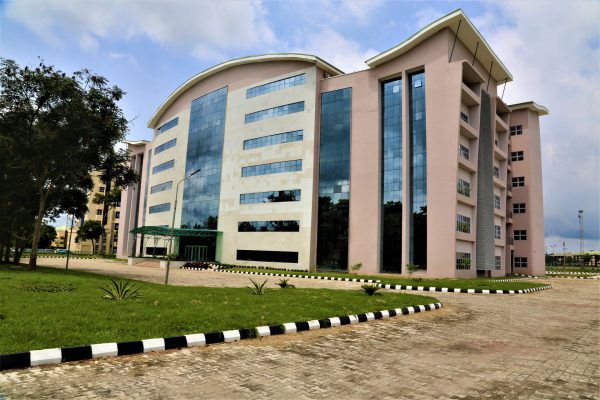
The Covenant University Centre for Research, Innovation and Discovery (CUCRID) is poised to drive the University vision of being one of the top 10 Universities in the world by 2022 from the research, innovation and discovery platform. The Centre’s administrative and operational structure is solid. The head of the Centre is a Director who also doubles as the Chairman of the Central Research Committee of the University. The Research Committee’s mandate includes policy formulation and review, assessment and recommendation of conference and research proposals, monitoring and evaluation of research clusters’ activities, and assessment of the research output of the University vis-à-vis the level of funding.
The research committee also evaluates research findings submitted for patent and copyright applications before filing with the respective organs. The research committee recommends to the Vice-Chancellor contemporary researches that are of both societal and industrial relevance. The Committee, in addition, makes available to faculty external research grant opportunities and assistance in proposal development. It is also the responsibility of the committee to project the image of the University from the research platform and secure partnership from research institutions, industry and governmental agencies. The University, on the recommendation by CUCRID, is to evolve related research clusters into Centres of Excellence.
The Centre for Research, Innovation and Discovery, in addition to the Research Committee, also has three sub-divisions: The Intellectual Property and Technology Transfer Office (IPTTO), the Commercialisation Unit, and the Research Park Unit. The IPTTO facilitates the process of patenting of filed applications, while the Commercialisation Unit drives the process of product commercialisation. The University has a policy on research and commercialisation that governs the operation of this Unit. The Research Park develops a framework for products incubation and creates an outdoor research community for thought-provoking discovery.
The University, as part of its policy on interdisciplinary research for effective utilisation of research findings, has established 30 research clusters that receive annual funding for research activities. These include: African Development Issues; Bioinformatics; Biotechnology; Built Environment; Business, Entrepreneurship and Innovation; Civil Environmental and Industrialisation; Corrosion and Materials Science and Engineering; Covenant University Public Health and Well Being; Covenant University Women Development & Human Security Initiatives (CU-WDHSI); Discourse, Media & Society; e-Government and e-Business; Environmental Sustainability Issues; Enactus (Student Researchers & Community Impacters); Gender, Peace and Conflict Resolution; Hebron Start Up Lab; Informal Sector; Industrial Mathematics; IoT – Enabled Smart & Connected Communities (IESCC); Mechatronics Engineering & Rapid Prototyping; National Wellbeing and Behavioural Issues; New Leadership Paradigm; Petroleum Reservoir Production & Engineering; Physics Cluster; Plant Science; Product Development; Public Private Partnership; Renewable Energy; Reverse Engineering and Kaizen; Software Engineering, Modeling and Intelligent Systems; and Urban Environmental Issues and National Development.
The research clusters are carving great niches in research and scholarship. They have turned out high volumes of publications in reputable outlets and journals indexed in Scopus and Web of Science.
Covenant is also active in turning out high grades of research projects and quality products, which CUCRID believes would go a long way to provide the expected relief in Africa and the world at large. Presently, the entire world is generally sensitised by the new move of providing enormous relief to the world population through research projects and project development. It is therefore interesting to note that Covenant is not left behind in addressing noticeable global challenges.
From inception, our research efforts robustly support the aspirations of the African Union Agenda 2063, the United Nations Sustainable Development Goals (SDGs) and the National Goals in achieving inclusive economic growth and development.
The University, through CUCRID, is also driving earnestly one of its core values, which is Capacity Building. In recognition of the importance of the technical staff of the University, training schemes have been developed to enhance their capacity. Many of them are already enjoying sponsorship to attend training programmes both nationally and internationally. The University develops the capacity base of the technical staff, considering the ever-emerging trends of new technologies. Furthermore, more funds have been made available to support faculty to attend conferences and to access research grants, all with the purpose of driving research at cutting edge. The University is committed to supporting faculty with great ideas that will solve the problems confronting the world, especially the African Continent.
